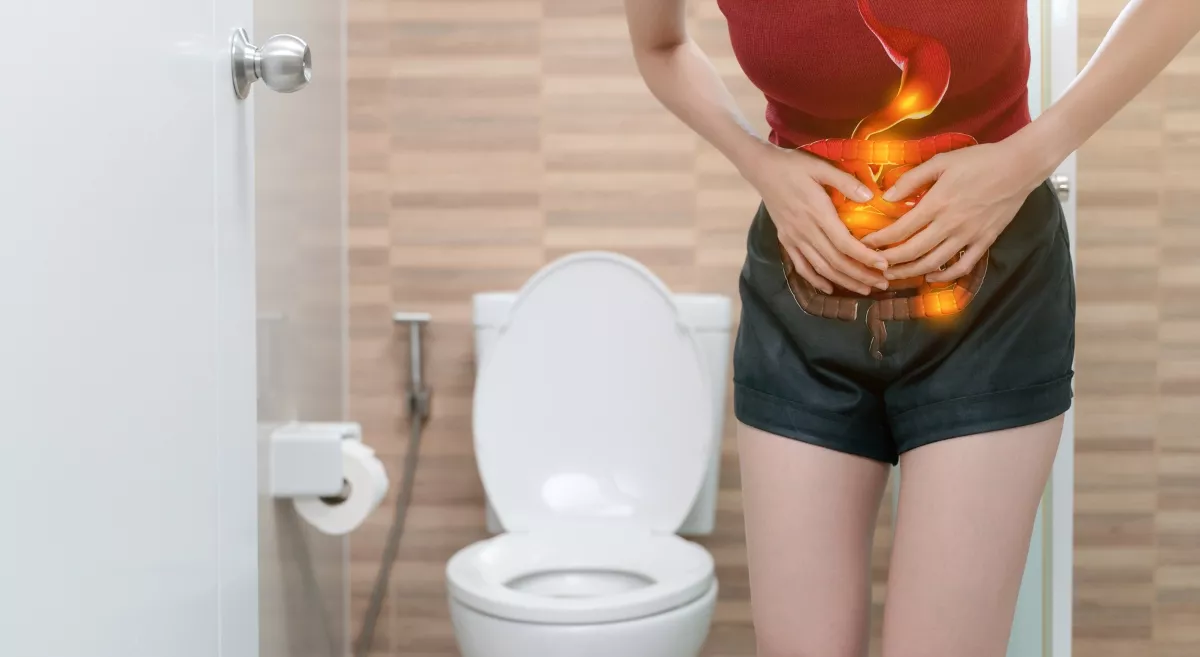Constipation is a gastrointestinal disorder that includes irregular bowel movements, difficulty in defecation, and feelings of fullness after a bowel movement. It can range from mild and self-remitting to severe and debilitating, with a marked reduction in quality of life. Luckily, there are many effective treatments available, ranging from changing some habits, taking medicine, and resorting to some natural cures. Knowing all the reasons and possible treatments for constipation can help you control the issue and boost healthy digestion. If symptoms persist, visiting an Internal Medicine Hospital in Hebbal Bangalore can help identify underlying causes and provide specialized care for digestive health.
What is Constipation?
Clinically, constipation is commonly described as experiencing fewer than three bowel movements in a week, in addition to having hard, dry, or lumpy stool that is painful or difficult to pass. Constipation is not a disease but rather a sign indicating that there is a problem with the digestive system, possibly due to fiber intake, water intake, exercise, etc., or it may be caused by medications. In its worst-case scenario, this condition is closely related to such issues as haemorrhoids, anal fissures, and rectal prolapse.
Why Does Constipation Happen?
Constipation can be caused by several factors, and therefore, determining the causes in a particular case is very important. Common causes include:
- Dietary Choices: Consuming foods low in fiber and rich in processed food is one of the leading causes of constipation. Fiber aids in the prevention of constipation by swelling bulk and encouraging bowel movements.
- Hydration: Lack of water in the body system also leads to constipation because, when the body lacks water, the colon tends to extract it from waste as much as possible.
- Lifestyle Factors: Lack of exercise slows down the digestive process. Sedentary lifestyles can thus be blamed for poor gut motility.
- Medications: Several drugs are known to cause constipation, including opioids, calcium- or aluminum-containing antacids, and some antidepressant drugs.
- Stress: Mental stress can impact gut health, affecting the digestive system and causing problems like constipation or irritable bowel syndrome (IBS).
- Health Conditions: Illnesses such as hypothyroidism, diabetes, irritable bowel syndrome, and neurological diseases can affect normal bowel functioning.
Treatment Options for Constipation at Home:
Here’s how you can treat constipation at home:
Increase Fiber Intake
Fiber is an essential component of a diet that promotes regular bowel movements. It helps add bulk to stools, making them easier to pass. Two main types of fiber can aid in relieving constipation:
- Soluble Fiber: Found in oats, beans, and fruits, soluble fiber absorbs water and forms a gel-like substance, softening stools.
- Insoluble Fiber: Found in whole grains, nuts, and vegetables, insoluble fiber adds bulk to stools, promoting faster transit through the digestive tract. Strive to eat 25–30 grams of fiber daily by including in the diet, green leafy vegetables, whole-grain products, fruits, vegetables, and beans. However, it is recommended to add fiber slowly into one’s diet to prevent things such as gas or bloating.
Stay Hydrated
Water is vital for proper digestion. When the body is dehydrated, it absorbs water from the stool, resulting in hard, dry stools. Aim for at least 8 glasses of water daily, and increase intake if you’re engaging in physical activities or experiencing hot weather. Herbal teas and clear soups can also help keep you hydrated and support bowel function.
Exercise Regularly
Physical activity encourages bowel motility. Regular exercise, such as walking, jogging, cycling, or yoga, can help move stool through the digestive tract. Engaging in at least 30 minutes of moderate exercise daily can have a noticeable effect on digestive health and prevent constipation.
Establish a Regular Routine
A consistent bathroom schedule can help train your body for regular bowel movements. Many people find that establishing a morning routine after meals can encourage a bowel movement, as digestion stimulates colon activity, known as the gastrocolic reflex.
Consider Natural Laxatives
Certain foods and drinks can act as natural laxatives. For instance:
- Prunes: Prunes contain sorbitol, a natural laxative that can help soften stools.
- Flaxseeds: High in fiber and omega-3 fatty acids, flaxseeds can relieve constipation when added to smoothies, yogurt, or salads.
- Aloe Vera Juice: Known for its soothing properties, aloe vera juice can help ease constipation, though it’s important to use it in moderation.
- Probiotic-Rich Foods: Foods like yogurt, kefir, and kimchi can introduce beneficial bacteria to your gut, promoting digestive health and reducing constipation.
Consume Over-the-Counter Laxatives
Over-the-counter laxatives can offer quick relief from constipation; however, they should be used cautiously and as a last resort for occasional use. Types of laxatives include:
- Bulk-Forming Laxatives: These have fiber, and it swells, making the stools softer, which makes passing through the colon easier. Examples include psyllium and methylcellulose.
- Stool Softeners: These work by expanding the stool by pulling water into the stool, thus making it easier to pass through the rectum.
- Stimulant Laxatives: Stimulants like bisacodyl act on the intestinal wall, allowing contractions to push stool through.
- Osmotic Laxatives: These retain water in the colon and thereby soften the stool. For example, lactulose and polyethylene glycol. Laxative abuse can lead to dependency and interfere with the standard function of the body. They should be taken strictly according to the directed dosage and not for long periods without consulting a doctor.
Have Supplements for Digestive Health
Certain supplements can help manage constipation by supporting digestive function:
- Fiber Supplements: If necessary dietary changes are not enough, fiber supplements like psyllium can help increase daily fiber intake.
- Magnesium Citrate: This supplement is a gentle osmotic laxative, as it brings more water into the intestines, easing bowel movements.
- Probiotic Supplements: Some probiotics are capable of improving balance in the gastrointestinal tract, possibly helping to alleviate constipation and enhance overall gut health.
Mindful Eating Habits
Eating habits make a huge difference. Eating slowly and chewing food well helps digestion and prevent constipation. Taking food at equal intervals is also proven to benefit bowel movements. Avoid large meals at night, as digestion may be less effective then.
Manage Stress and Mental Well-Being
Stress can affect the digestive system and lead to constipation or IBS. Engaging in stress-relieving activities like deep breathing exercises, meditation, and yoga can promote relaxation and improve gut motility. Consulting experienced General Physicians in Hebbal Bangalore can also help assess if stress-related or lifestyle factors are contributing to chronic constipation and guide you toward holistic treatment.
Seek Medical Advice for Persistent Constipation
Chronic constipation, lasting more than a few weeks despite lifestyle and dietary changes, warrants medical evaluation. A healthcare provider can assess for underlying conditions, suggest further diagnostic tests, or prescribe medications like prokinetics, which stimulate bowel contractions. Severe cases may require additional interventions, such as biofeedback therapy, which teaches muscle relaxation techniques for improved bowel control.
When to See a Doctor
While constipation is often manageable at home, certain symptoms indicate a need for medical attention:
- Severe abdominal pain or bloating
- Blood in the stool
- Unexplained weight loss
- Temporary alteration in the stool’s shape or color
- Constipation persisting for more than three weeks Some of these signs could be due to a medical condition that demands a doctor’s attention.
Conclusion
Constipation is a widespread issue that can easily be controlled. Most people will improve their bowel habits by making dietary changes, drinking adequate fluids, engaging in physical activity, and using supplementary natural interventions. However, people should know when to see a doctor if self-treatment does not help, as this can be critical if the problem worsens over time. These habits are effective for digestive system health and also helpful for other body systems. It is crucial to note that changes towards a healthier bowel movement require balance and taking charge of gut health.







